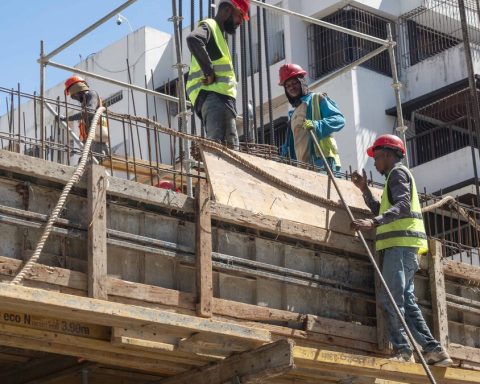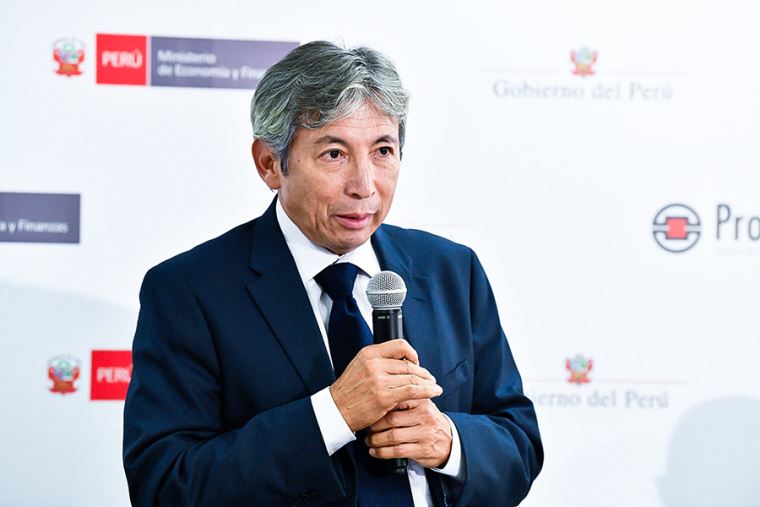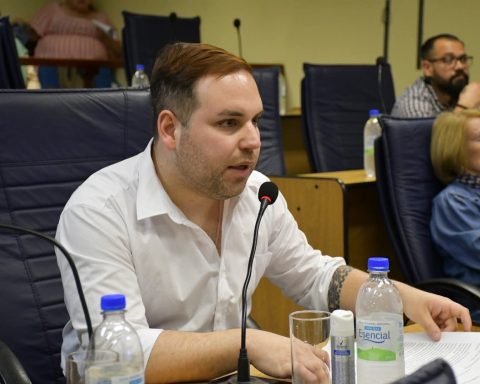In this 2025the Dominican Republic will continue with one of the most pressing challenges to stimulate its economic development: The informalitya persistent problem that prevents the creation of better jobs for the population and that the authorities could address with short and medium-term measures that do not depend on a tax reformwhose attempt failed in 2024.
The informal occupation was around 55.3% in the third quarter of last year, according to the most recent data from the Central Bank of the Dominican Republic (BCRD).
Although this rate represents an improvement of 1.4 percentage points compared to the same period in 2023 – when it was around 56.7% – it is still above the number of people who work in the formalitywhose proportion was 50.5% between July and September 2024.
“The fact that the informal sector advances means that more workers are out of reach of the social securitywhich typifies it as low quality jobs“, economist Haivanjoe Ng Cortiñas explained to Diario Libre.
Expansion and measures that can be taken
“An important element would be to eliminate the advance payment (…), also, focus on tax simplification”Economist.
BCRD statistics indicate that the economy It had 2,421,852 formal jobs between July and September of last year, 50,828 more jobs than the 2,371,024 informal jobs in that period. However, the informality increases when it is taken into account that 219,789 people performed domestic services outside the formal market during this period.
For Ng Cortiñas, this reality constitutes a challenge for the budget policy of the Government, which already contemplates a public spending weak geographic in poor communities, with a social spending which was reduced to 44% of total spending, which leaves the country’s most needy population in exclusion, and pushes them towards informality.
Added to this is the reduction of capital expenditure of the General State Budget by up to 12%, which does not promote the creation of formal jobshe pointed out.
His counterpart, Juan Ariel Jimenezstressed that most of the employment created in recent years has been informal.
Furthermore, he highlighted that a good weighting of jobs within the formality were generated by the government itself, which poses the challenge to the authorities of promoting the formal employment in the productive sectors.
“A very important element would be to eliminate the advance payment, because it is a tax which greatly limits the companiesespecially at companies new. Also, focus on tax simplification, making it easy to pay taxes, comply with the TSS (Social Security Treasury) and, in addition, productive development policies in which we can take advantage of the opportunities that nearshoring provides,” he noted. .
He also highlighted that the Government could focus on attracting more foreign investment for installations of companies of Business Process Outsourcing (BPO), which could increase the number of formal jobs qualified and highly paid.
The monetary entity also counted 428,303 workers who, although they are not formalized themselves, provide services to companies that are, which it calls “informal workers outside the informal sector”, and whose weighting within the employed population is stood at 8.5%, three percentage points more than in the third quarter of 2023.
You can act without reform
Both economists assure that the Government can execute actions that encourage growth of formalitywithout having to wait for a tax reform.
“Structural reforms require a political and social consensus that takes time to build; other shorter-term actions are needed that can have an impact,” said Jiménez, who understands that, for this, the authorities can focus on facilitating business and attracting foreign investment direct.
Ng Cortiñas maintains a more skeptical position, and is based on the fact that the budget approved for this year lacks a budget policy that raises the social spendinggeographic spending and public investment, three elements that guarantee that the informality will decrease.
This should also be accompanied by procedures that allow informal workers see the regularization beyond just being a Government mechanism to collect more taxes.
“Like the budget does not have the indicated characteristics, I have no expectations that the informality give in to the formality“, he concluded.
















